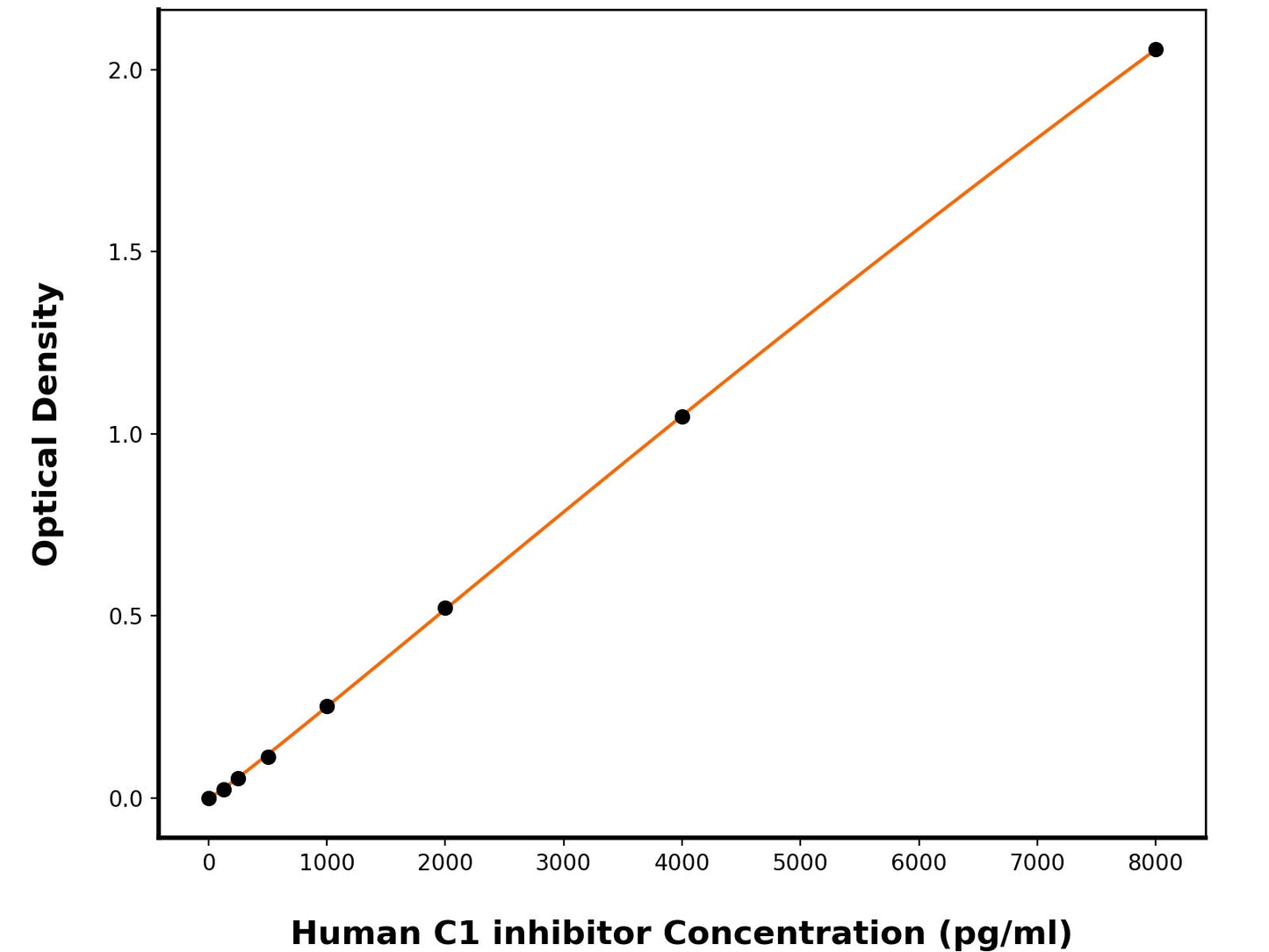1
/
of
1
Human Plasma Protease C1 Inhibitor (SERPING1) ELISA Kit
Human Plasma Protease C1 Inhibitor (SERPING1) ELISA Kit
This ELISA kit is designed to detect Human Plasma Protease C1 Inhibitor (Human SERPING1). The assay plate has been pre-coated with mouse anti-Human C1 inhibitor monoclonal antibody. When the sample containing C1 inhibitor is added to the plate, it binds to the antibodies coated on the wells. Then, a horseradish peroxidase conjugated mouse anti-Human C1 inhibitor Antibody is added to the wells and binds to C1 inhibitor in the sample. After washing the wells, substrate solutions are added, and the color intensity is directly proportional to the amount of Human C1 inhibitor present. The reaction is stopped by adding an acidic stop solution, and the absorbance is measured at 450 nm.
Catalog No:
BPE163
Regular price
$754.00 USD
Regular price
$580.00 USD
Sale price
$754.00 USD
Unit price
/
per
2 weeks
Couldn't load pickup availability
Product Details
Species Reactivity
Human
Sensitivity
31.17 pg/mL
Detection Range
125-8000 pg/mL
Sample Type
Serum, plasma, cell culture supernates
Incubation(s)
3.5 hour(s)
Research Areas
Cardiovascular, Immunology
Background
Plasma protease C1 inhibitor, also known as C1-inhibiting factor, C1-INH, C1 esterase inhibitor, SERPING1 and C1IN, is a serine proteinase inhibitor (serpin) that regulates activation of both the complement and contact systems. By its C-terminal part (serpin domain), characterized by three beta-sheets and an exposed mobile reactive loop, C1-INH binds, and blocks the activity of its target proteases. The N-terminal end (nonserpin domain) confers to C1-INH the capacity to bind lipopolysaccharides and E-selectin. Owing to this moiety, C1-INH intervenes in regulation of the inflammatory reaction. The heterozygous deficiency of C1-INH results in hereditary angioedema (HAE). Owing to its ability to modulate the contact and complement systems and the convincing safety profile, plasma-derived C1 inhibitor is an attractive therapeutic protein to treat inflammatory diseases other than HAE. Deficiency of C1 inhibitor results in hereditary angioedema, which is characterized by recurrent episodes of localized angioedema of the skin, gastrointestinal mucosa or upper respiratory mucosa. C1 inhibitor may prove useful in a variety of other diseases including septic shock, reperfusion injury, hyperacute transplant rejection, traumatic and hemorrhagic shock, and the increased vascular permeability associated with thermal injury, interleukin-2 therapy and cardiopulmonary bypass.
Shipping Condition
Shipped on cold gel packs.
Storage Condition and Shelf Life
This product can be stored at 2-8C.
Analyte
Plasma protease C1 inhibitor
Regulatory Status
For Research Use Only

